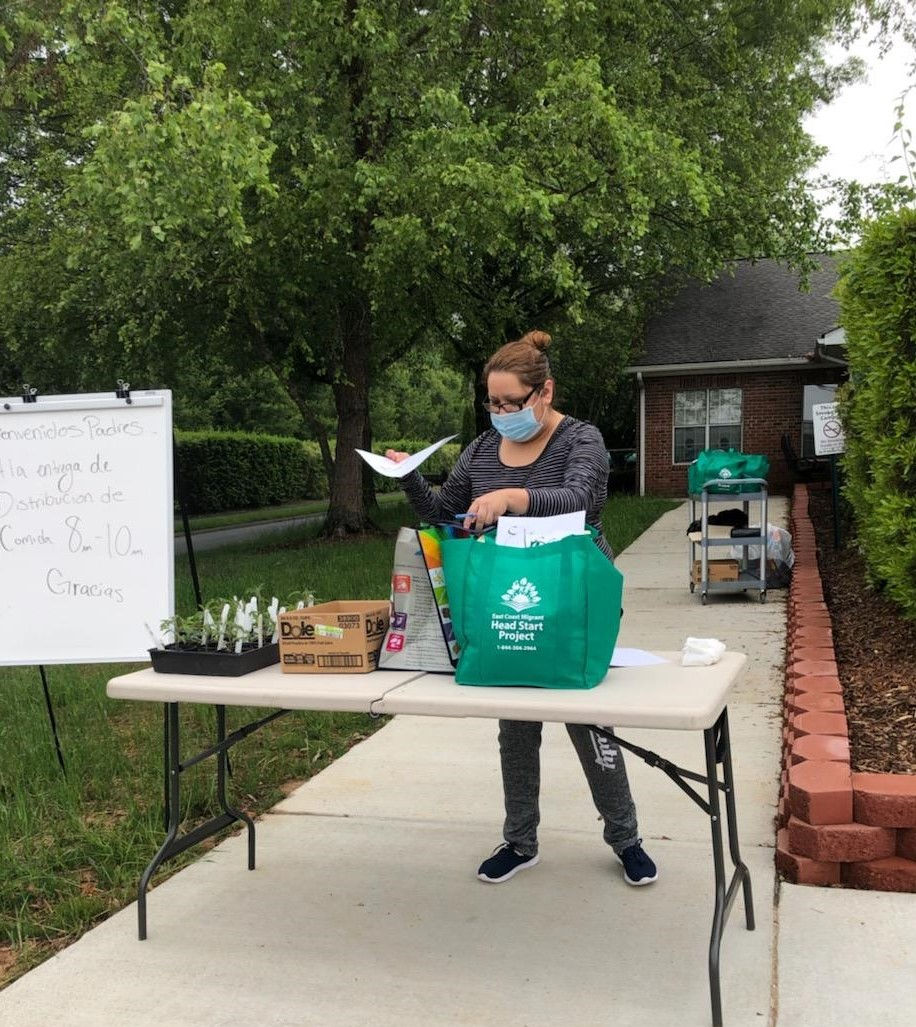Our Families Return to the North Carolina Fields
- lsaunders07
- Nov 3, 2021
- 3 min read

We recently talked to Patti Kingery, North Carolina Head Start Administrator, about the challenges and opportunities in anticipation of our center openings in three weeks.
How have the last few weeks been in preparation for the start of remote services in North Carolina?
Over the past two weeks, the North Carolina team, together with support from colleagues in Alabama and Florida, were able to complete applications for more than 100 migrant and seasonal farmworker children. We recently enrolled 78 children in six centers in North Carolina. These include: Angier, Bladen, Faison, Hendersonville, Newton Grove, and Whiteville. All six of those Centers prepared and distributed much needed food, diapers, wipes, health education materials, and educational activities to all enrolled children and their families. We are still enrolling families every day.

Irma Mendoza, ECMHSP Policy Council President.
We know a lot of people are stepping up to support our families. What is one of the takeaways from these first two weeks?
Irma Mendoza, Parent President of the Bladen Center and Policy Council President, made handmade masks and brought them to the Bladen Center to distribute to families when they picked up their materials. She also created additional cloth masks to be shared with families at the Faison Center. We are really proud of her initiative to keep our parents safe in the fields!

North Carolina Families receive goods, health education materials, and education packets for their children.
Why are community partnerships so important during times like these?
In Newton Grove, we had difficulty obtaining infant formula to provide to two families with young infants. Staff contacted our partner at the local WIC program and explained the need. WIC worked hard to provide formula to our two families. In Hendersonville, our ECMHSP staff connected with local community partners at the WIC program and WIC provided each family with individual tomato plants, paper plates, napkins, paper towels, and nutrition activities for children. Without these community partnerships, some of our families would have struggled.
What are the main needs of our families?
While some families have been able to access emergency food from places like schools, food banks, and churches, they have not been able to access diapers and wipes. This is much needed among our North Carolina families. In addition, we must continue sharing health education materials, so our families understand why social distancing and wearing face masks helps reduce the spread of COVID-19. We are working on different ways to provide health education for parents, as the numbers of positive tests for COVID-19 is rising in some of the communities we serve.
How are teachers engaging with the families that have enrolled so far?
Because children and families have yet to meet their teachers officially this season, staff first introduced the assigned teachers via information in the education packets. Teachers have started reaching out to families every week via phone and video. The first educational YouTube videos have been shared with families. Check out the following video from our ECMHSP Hendersonville Center.
We thank everyone involved in helping our North Carolina families while they work to put fresh fruit and vegetables on our tables. If your organization can support our farmworker families in any of our service areas, please reach out to John Menditto, ECMHSP General Counsel and Director of Risk Management, at menditto@ecmhsp.org. You can also make a tax-deductible donation through our Mightycause fundraising platform by clicking HERE. These funds will go to our farmworker families who need help getting back on their feet. We thank you in advance for your generosity.
_transparent%201.png)



Comments